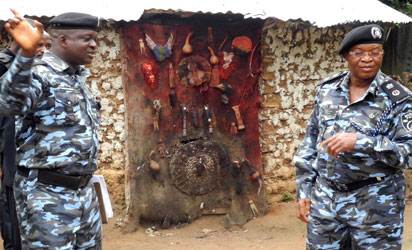WALKING IN WISDOM- GOOD MORNING
The Wisdom Model of Living Life
The comparison is often made that a person’s traveling through life is like taking a journey. I have found that comparison to be very helpful in a number of ways. In the same way that life can be filled with ups and downs, so, too, a traveler can be confronted with hills and valleys. Also, as we journey, there will be times of refreshing and times of drought. Recently I reflected on the aspect of the road itself. While taking a road trip I realized that no matter what road we take, we all eventually come to a crossing, something that presents us with a moment of opportunity and decision.
Life, like my road trip, is also filled with many crossroads. Most of the decisions we make in life are minor, having little serious or lasting impact. However, there are times, just like some crossroads, when the choices we make will have serious outcomes. These life-changing crossroads are critical points of decision because they can impact us for the rest of our lives. Points of decision like the type of career we choose, the place we choose to live, or the person we marry, are critical.
There are many ways in which our journey through life is similar to taking a walk. Often we have time to plan and prepare, but there are other times when we need to make a quick decision and act. One of the worst feelings we have is when we reach a crossroad in life and do not know which way to go. It is at these critical points of decision that many of us wish the Lord would simply tell us what he would like us to do. It certainly would simplify things if he would just show us the best path to take. When we do not know what to do, we often end up stuck in the middle of the intersection, which is not a good place to stay.
I know I am not alone in having feelings of frustration when I am “stuck.” I often see others who are also immobilized with indecision, stuck in uncertainty. Far too often it is because we do not want to make a mistake, but then there are also those times when we legitimately do not know what to do. At times like this I have prayed, “I’ll do anything you want me to Lord, just show me what you want me to do.” Certainly direction from the Lord would be the quickest and easiest answer to my situation. Unfortunately, the lack of a reply is even more unsettling.
I have often wondered, “Why don’t we hear more often from the Lord at times like this?” Clearly, we know he loves us, and there is no good thing that he, or the Father, would ever withhold from us. I know the Lord directs his people, and I am certain about many instances when he has guided me, but there are many times when I am standing at the crossroads and I get no sense of him showing me what to do.
That is when it occurred to me, “Maybe he doesn’t answer me because he really doesn’t want to tell me what to do.” There are a couple of reasons that the Lord might not answer me. One is that I have enough information to make the right decision on my own if I just use wisdom. Another is that there is no “right answer,” because the Lord will work with me in whatever choice I make.
The other day I was helping my three-year-old grandson learn the task of getting dressed. As I helped him, I observed that I needed to instruct and help him, but not to the point of making him too dependent upon me. After all, the more I do for him, it seems the less he wants to do on his own. This tendency seems to run pretty deep for most people. I also noted that when he does what I tell him to do, I am pleased because of his obedience, but I am even more thrilled when I see him do the right thing after he has reasoned it out for himself. That’s when it hit me: Is the way God is working with me similar to the way I am working with my grandson?
God is not a Micromanager
God has no desire to control every minute detail of our lives. I resist being micromanaged, and resent it when someone is controlling or dictating my every move. As parents, it is our job to help our children develop individuality and independence. Micromanaging, controlling, or directing a person’s every move does nothing to foster the development of self-confidence and self-government. Although it is hard to do, ignoring a child’s request for help is necessary when we know he has the ability to figure out the solution for himself, so why would we expect anything different or less from God?
When faced with the decisions of life, God has already provided us an answer that requires us to grow and stretch our abilities. He tells us that the answer is wisdom, and that is why He says, “Wisdom is supreme; therefore get wisdom…” (Prov. 4:7). When we do not know which path to take, He says by wisdom we “…will understand what is right and just and fair—every good path” (Prov. 2:9). God really has no need to tell us what to do most of the time. We just need to learn to walk in wisdom.
When we apply ourselves to godly wisdom, we grow in our ability to discern, which is the ability to perceive clearly. Wisdom provides discernment, and discernment allows us to separate matters, first in separating right from wrong, and then even eventually in cutting between better and best. The Apostle Paul prayed that the Philippian church would increase in knowledge so that they could discern what was best in order to be pure and blameless (Phil. 1:9 and 10). It is God’s will that we are wise to discern things for ourselves. A mature person is someone who can think for himself, has the ability to determine what is the right way to go, and if he cannot figure it out, he knows who to turn to for advice.
Wisdom & Prayer
We should always seek to do the will of God, so when we are faced with the major decisions of life, we should seek His direction through prayer. But we should also strive to use wisdom, knowing that His answer to our situation may be found through both. We cannot forget that applying ourselves to wisdom is doing the “will of God.” Many times we have the “seeking His direction” part right, but we forget the “applying wisdom” part. God tells us that we are to seek wisdom even if it costs us all we have (Prov. 4:7). Wisdom is more profitable than silver, yields better returns than gold, and is even more precious than rubies, and nothing we desire can ever compare to it (Prov. 3:14 and 15).
Wisdom may show us which way to proceed, but that is only part of the solution to the problem we face at a crossroad. Walking in wisdom involves not only knowing what to do but, more importantly, doing it. Wisdom shows us what to do, but our character is what enables us to do it. It is good to promote discernment and wisdom, but discerning what to do is meaningless if we do not have the proper character to do it.
Character Counts
God has demonstrated through numerous examples in His Word that He is more concerned with our character than He is with our gifts and callings. For example, God gave King Solomon wisdom greater than any man who ever lived before or after him (1 Kings 3:12, 4:29-34). Yet it was Solomon’s character flaws that resulted in his doing evil. “…Solomon did evil in the eyes of the Lord; he did not follow the Lord completely, as David his father had done” (1 Kings 11:6). The record in Deuteronomy 17 expressly forbade the kings of Israel from doing a number of things, such as returning to Egypt, taking many wives, accumulating large amounts of silver and gold, or maintaining great numbers of horses. The kings were also directed not to think of themselves as being better than their brothers, or to turn from the Law. 1 Kings 10 and 11 records that Solomon did exactly the opposite of what God had directed. How unfortunate it is that Solomon, the wisest man to ever live, failed because of his poor character. Wisdom may show us what to do, but character is what enables us to do it.
God’s gift to Solomon at the time of his inauguration as king was wisdom. Then God appeared to him a second time when he was about forty years old saying, “…if you walk before me in integrity of heart and uprightness…” (1 Kings 9:4). God saw the dangerous trajectory of Solomon’s character flaws and warned him to walk with integrity. Of all the godly character traits a person must have, there is none more important to God than integrity. Integrity is the quality of being the same on the inside and outside. When we walk with integrity we are people of truth, through and through.
Twice God says of Solomon’s father, David, that he was a man after God’s own heart (1 Sam. 13:14 and Acts 13:22). One reason he was a man after God’s own heart was that he was a man of strong godly character. David’s prayer to God was, “Surely you desire truth in the inner parts; you teach me wisdom in the inmost place” (Ps. 51:6). Unlike his son Solomon, David was a man of great character, and one of his great character traits was his integrity. This is why God’s Word says, “He chose David his servant and took him from the sheep pens; from tending the sheep he brought him to be the shepherd of his people Jacob, of Israel his inheritance. And David shepherded them with integrity of heart; with skillful hands he led them” (Ps. 78:70-72).
Lessons about Wisdom & Character
Lessons about wisdom and character abound in the Word of God. King Saul failed because of his character flaws. He feared the people and was more concerned about his reputation with men than his standing before God. In contrast, the patriarch Joseph had enough character that he fled from his master Potiphar’s wife when she tried to seduce him. When she appealed to him, he refused her, saying, “…my master does not concern himself with anything in the house; everything he owns he has entrusted to my care. No one is greater in this house than I am. My master has withheld nothing from me except you, because you are his wife. How then could I do such a wicked thing and sin against God?” (Gen. 39:8 and 9). Now that’s a man with great character and integrity.
When we are people of integrity we are concerned about the things God is concerned about, and we will do the things He wants us to do. Unlike people, who look on the outward appearance, God looks on the inside at a person’s heart. Often we are attracted to a person who is a skillful presenter, or walking strongly in a spiritual calling. It is good for all of us to seek to know and walk in our gifts, but we must never make the mistake of putting gifts and callings ahead of character. God looks on the heart because that is where character dwells. That is why He says in Proverbs 4:23, “Above all else, guard your heart, for it is the wellspring of life.” Our hearts, like a wellspring, are the source from which things flow. After speaking about our hearts, God addresses character matters, saying, “Put away perversity from your mouth; keep corrupt talk far from your lips. Let your eyes look straight ahead, fix your gaze directly before you. Make level paths for your feet and take only ways that are firm. Do not swerve to the right or the left; keep your foot from evil” (Prov. 4:24-27). These are all commands addressing our character.
We will be faced with many crossroads as we continue on the pathway of life. Some junctions will be critical points that will determine, to a great degree, the course of our lives. We must always seek God’s will, and trust to follow His lead. Thankfully God has provided us direction and shown us that we should pursue wisdom. In doing so we will be able to know what is the right and good path to follow. God will never leave us without an answer, and once we have discerned it we must have the character to follow through and do it. My good friend, Mike Patten, introduced me to a phrase that a pastor he knew often used. He said that spiritual maturity amounts many times to “just doing the next right thing.” Walking in wisdom involves discerning the right thing to do, and then having the strength of character to do it.
DEATH RITUALS IN AFRICA

Death Rituals in Africa
By Charlotte Gerber
There are many different death rituals in Africa that are observed. There is one commonality though; most people believe that only a correct burial will bring a dead person peace.
Ads by Google
Hair Salon Schools Excellence In Education. Classes Begin Next Month. Apply Online Now! TSPAbuffalo.com
A Correct Funeral
Body Removal
A correct funeral in Africa begins with the removal of the body from the home. Previous to a person dying, a hole is made in the side of the home. When it is time to remove the body from the home, it is taken out of the house through the hole instead of a door, feet first. This is to keep the spirit from finding an easy way back into the home. As the body is being transported to the place of burial, thorns and sticks are placed along the way and a zigzag pattern is used to confuse the spirit. These precautions are taken so that the spirit does not bother the living.Depending upon religious beliefs, some people make it easier for their loved ones to find their way back home. They may even be buried under or next to the home.
Request for the Departed
Family members request the departed do not bring trouble to them after they have died, as well as asking that they strengthen life on Earth. It is believed that the living, as well as the dead, have a life force. This life force doesn’t diminish once a person has passed into the next world.
Home Bringing Rite
It is common to sacrifice animals as part of the death ritual in Africa. An ox is the popular choice, as it is believed this animal will accompany the deceased person to the land of their ancestors. Oxen also serve another purpose; the beasts provide food for the mourners. Other families may choose to sacrifice an animal months or even several years after a person has died. It is believed that a person has never truly died until there is no one left among the living to remember them.
Ads by Google
Dedicated Server $39/mo Intel i3 2×3,4GHz, 8GB, 2x1TB 100Mbps, 5TB, 4xIPv4, IPv6 www.ovh.com/us
L’Oréal Professionnel Keep Haircolor Vibrant With Our UV Protective Oil, Colour Glow us.lorealprofessionnel.com
Hair Removal Cream Review The 5 Best Hair Removal Products. Free Offers & Shipping! DailyLife.com
Death Rituals in Africa for the Home
Preparing a home after the death of a loved one is an important funeral rite. The windows are smeared with ashes, pictures are turned to face the wall and any reflective object such as a television or mirror is covered. In the deceased person’s bedroom, the bed is removed and the women of the family sit on the floor upon a mattress or cushion. For the next week or two, people in the community visit these women to offer their respect and condolences.
In Christian homes, the day before a funeral the dead person is brought home and placed in their bedroom. Family members then hold a vigil until the next morning. The funeral is often conducted before sunrise. The reason for this is that witches and sorcerers are asleep at this time and not likely to take over the corpse of their loved one.
Ritual Animal Sacrifice
An animal may be killed right before the funeral as a ritual bloodletting. It is believed that blood needs to be shed to prevent further misfortune in the family. The hide of the animal may also be used to cover the person or their casket at the funeral.
Burial Rite
Family members, with the exception of children and unmarried individuals, are expected to attend the burial. The family stands on one side of the gravesite and everyone else on the other side. The family is not allowed to speak during the burial. Personal items are buried with the person to help them in their journey to their ancestors.
Mourning
After the burial, mourners may return to the family’s home. At the gate of the home they are expected to wipe the graveyard dust from their feet and some mourners may place pieces of the aloe plant in water to remove bad luck. Christians may also sprinkle the mourners with holy water to purify them.
Some families follow a strict mourning ritual. Men may shave all of their hair from their head and face, symbolizing death and new life. Family members may wear black clothing or black cloths on their backs for weeks or even as long as a year. Widows are expected to mourn for a year and children who have suffered the loss of a parent are expected to mourn for three months.
A Dead Person’s Possessions
It is believed that anyone who has come into contact with a corpse is unclean. In addition, anything the dead person has touched is also unclean. This includes tables, chairs, utensils, blankets and clothing. All of these items must be washed and not used until the mourning period is over. A dead person’s clothing may either be tied up with string for one year then distributed to family members or they may be burned.
The death rituals in Africa are changing as Christianity and Islam are being introduced. Many elements of the Christian faith can be seen in the evolution of the rituals. Ritual slaying of animals and talking with the dead are being seen less frequently in modern times. Many communities are hanging onto their traditions as a way to preserve their culture. Churches are seen as a player, not as an overseer, in the funeral rite.
.
****RULES**** 1. Debates and rebuttals are allowed but disrespectful curse-outs will prompt immediate BAN 2. Children are never to be discussed in a negative way 3. Personal information eg. workplace, status, home address are never to be posted in comments. 4. All are welcome but please exercise discretion when posting your comments , do not say anything about someone you wouldnt like to be said about you. 5. Do not deliberately LIE on someone here or send in any information based on your own personal vendetta. 6. If your picture was taken from a prio site eg. fimiyaad etc and posted on JMG, you cannot request its removal. 7. If you dont like this forum, please do not whine and wear us out, do yourself the favor of closing the screen- Thanks! . To send in a story send your email to :- [email protected]



Recent Comments